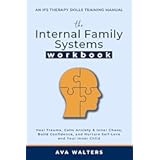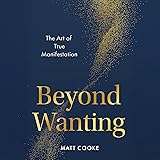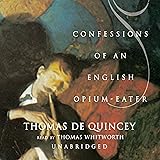The accompanying video provides profound insights into key Islamic principles, emphasizing the critical importance of time management and the cultivation of a lasting legacy. At its core, the message implores believers to understand the transient nature of this world and to proactively invest in their eternal future, particularly through the upbringing of righteous children and the pursuit of beneficial knowledge. This article aims to further elaborate on these themes, offering a deeper dive into the Quranic wisdom and prophetic guidance that shapes a truly meaningful life.
Understanding Divine Diversity: Lessons from Surah Al-Baqarah (2:253)
The discourse commences with a powerful reflection on Surah Al-Baqarah, Ayah 253, which elucidates the varying ranks and virtues bestowed upon the prophets by Allah. It is asserted that while all prophets were divinely appointed for humanity’s guidance, their individual distinctions are a testament to Allah’s infinite wisdom and the inherent diversity within His creation. From those with whom Allah spoke directly to those granted potent miracles, each messenger was uniquely equipped for their mission. Consequently, this verse establishes a fundamental principle: difference and variety are not imperfections, but rather intrinsic components of the divine order.
In this regard, an important analogy is drawn, likening the prophets’ distinct qualities to the varied excellence found in nature—the unique majesty of a mango among fruits, the distinct charm of a rose among flowers, or the specific honour of Mount Tur among mountains. Such comparisons underscore that while all creation is praiseworthy, certain elements are distinguished by specific virtues. Therefore, it is understood that the same principle applies to individuals and their roles within the Muslim community. Allah, in His infinite wisdom, has granted diverse talents and capabilities to different people to ensure the functioning of the world and the propagation of His message. Acknowledgment of this diversity fosters humility and appreciation, rather than fostering division.
Furthermore, a crucial point is made regarding the avoidance of personality worship and sectarianism. Historically, and even in contemporary times, communities have become divided by elevating certain pious figures or scholars above others, leading to disputes and fragmentation within the Ummah. The video emphasizes that while respecting and learning from scholars is vital, the ultimate allegiance belongs to Allah and His Messenger. It is essential to discern the wisdom in differing interpretations and to recognize that variations in human understanding are natural. The guidance, therefore, encourages Muslims to benefit from the knowledge and efforts of all righteous individuals without falling into the trap of idolizing personalities or allowing differences to breed animosity. The pursuit of knowledge should unite, not divide.
The Finite Nature of Time: An Urgent Call to Action (Surah Al-Baqarah 2:254)
Subsequently, the discussion transitions to Surah Al-Baqarah, Ayah 254, which presents a direct call to the believers to spend from what Allah has provided, before the inevitable day arrives when neither trade, nor friendship, nor intercession will be of any avail. This verse is presented as a profound reminder that this life is akin to a “time-bound check,” a limited opportunity to accumulate good deeds and prepare for the hereafter. The urgency conveyed is palpable; there will be no bargaining or second chances once this earthly sojourn concludes. In essence, the present moment is the only one guaranteed for making a spiritual investment.
Consideration must be given to the broader context of this verse, which marks the beginning of a significant section in Surah Al-Baqarah dedicated to economic and financial matters in Islam. The verse highlights the preferred method of wealth utilization: spending in Allah’s way through charity (Sadaqah). Conversely, it contrasts this with the worst form of transaction, usury (Riba), and also discusses the permissibility of interest-free loans and collateral in situations of necessity. This comprehensive view on financial ethics underlines that wealth is not merely for personal indulgence but is a trust from Allah, to be managed and expended righteously. Therefore, the prudent management of resources, both time and wealth, is intrinsically linked to one’s ultimate salvation. The focus is always on transcending temporal gains for eternal rewards.
The video underscores that the essence of this message is echoed in the latter part of the same Surah, where the disbelievers’ futile attempts to offer the entire earth’s worth of gold for their salvation on the Day of Judgment are described. The response from Allah will be that only a fraction was asked for during their worldly life, yet even that was denied. This powerful comparison serves to reinforce the immediacy of the call to action for believers: to seize the opportunity now, while it is still available, to earn Allah’s pleasure through acts of charity and sincere devotion. The window for earning rewards is open only during this life, emphasizing the crucial role of Islamic time management in prioritizing the eternal over the ephemeral.
Building an Everlasting Legacy: The Three Enduring Deeds
A cornerstone of the discussion revolves around a pivotal Hadith narrated by Abu Hurayrah (RA), found in Sahih Muslim (1631). The Prophet Muhammad (PBUH) stated: “When a person dies, all his deeds come to an end except for three: Sadaqah Jariyah (ongoing charity), knowledge from which others benefit, and a righteous son who prays for him.” This Hadith provides a roadmap for constructing an everlasting legacy, ensuring that one’s account of good deeds continues to accumulate even after death. These three categories represent the most impactful ways an individual can contribute to society and secure their spiritual future.
Sadaqah Jariyah: Ongoing Charity for Eternal Rewards
Sadaqah Jariyah, or ongoing charity, is defined as a charitable endowment whose benefits continue over an extended period, even after the benefactor has passed away. The examples provided in the video, such as digging a well or establishing a hospital, perfectly illustrate this concept. Consider the profound impact of constructing a mosque, establishing an orphanage, or endowing a school. Each of these initiatives generates continuous good, benefiting countless individuals over generations. For instance, a well dug in a parched village continues to provide clean water long after its donor’s death, accumulating rewards for them with every drop consumed. Similarly, a scholarship fund that enables students to pursue education or the planting of trees that provide shade and fruit are all forms of Sadaqah Jariyah. Individuals are encouraged to seek opportunities for such investments, considering how their contributions can serve humanity beyond their lifetime. The sustained impact of these actions ensures a perpetual flow of blessings and divine favor.
Beneficial Knowledge: A Light that Never Fades
The second enduring deed is “knowledge from which others benefit.” This encompasses not only religious scholarship but also any knowledge that contributes positively to humanity, provided it aligns with Islamic principles. The video emphasizes the need for intellectual jihad, which involves fostering generations that are not only knowledgeable in religious sciences but also capable of using their intellect to defend Islam and guide humanity. This could involve writing books, teaching, conducting research, establishing educational institutions, or developing innovative solutions that benefit society. An individual who compiles a comprehensive work of Islamic jurisprudence, for example, or a scientist who invents a cure for a disease, leaves behind a legacy of knowledge that continues to benefit others long after their demise. It is imperative that Muslims prioritize acquiring and disseminating knowledge that genuinely serves the spiritual and worldly well-being of the community. The emphasis is placed on quality and authenticity of knowledge, preventing the spread of innovations or ideas that deviate from the Quran and Sunnah.
Righteous Offspring: Our Living Legacy
Finally, the Hadith highlights the immense value of “a righteous son who prays for him.” This emphasizes the critical role of parenting and *tarbiyah* (holistic upbringing) in Islam. A righteous child is a living, breathing Sadaqah Jariyah, whose prayers, good deeds, and positive impact on society continue to benefit their parents in the grave. The video laments the modern predicament where parents often prioritize material provisions (food, shelter, toys) over the spiritual and moral development of their children. Consequently, deep reflection is prompted: Have we truly prepared our children to be conduits of blessing for us after our passing? Do they possess the knowledge and character to pray for our forgiveness and elevation?
Therefore, parents are urged to invest their time and effort into nurturing their children’s faith, teaching them the Quran and Sunnah, instilling strong moral values, and encouraging them to be active contributors to society. It is not merely about reciting prayers, but about cultivating a heart filled with love for Allah and His creation, embodying the teachings of Islam in their daily lives. The story of Umme Maryam’s vow and Imam Bukhari’s mother’s dedication (discussed below) serves as a powerful testament to the transformative potential of devoted parenting. The ultimate aim is to raise children who will not only be successful in this world but will also be instrumental in their parents’ success in the hereafter.
Inspiring Role Models: The Mother of Imam Bukhari and Umme Maryam
The video beautifully intertwines the lessons of legacy with the inspiring stories of two exceptional mothers: Umme Maryam (Mary, the mother of Prophet Isa AS) and the mother of Imam Bukhari. These narratives serve as compelling examples of how a mother’s foresight, faith, and dedication can shape the destiny of her children and, by extension, the entire Ummah.
Umme Maryam’s story, as mentioned in the Quran, depicts her profound vow (nazar) to Allah regarding her unborn child: “My Lord, indeed I have pledged to You what is in my womb, to be dedicated to Your service, so accept from me.” This act of devotion, made even before the child’s birth, illustrates a mother’s ultimate aspiration for her offspring: not worldly success alone, but dedication to Allah’s path. This exemplifies a profound understanding of divine purpose and a prioritization of spiritual legacy over material comfort. Her prayer was for a child consecrated for Allah’s service, laying the foundation for the miraculous birth and prophetic mission of Isa (AS).
Similarly, the life of Imam Bukhari’s mother stands as an indelible testament to the power of a mother’s prayers and perseverance. Born into a Persian family, Imam Bukhari (Muhammad ibn Ismail) was orphaned at a young age, his father having passed away early in his life. His father was known for his piety and integrity, ensuring that all his earnings were purely lawful—a foundation for the son’s purity of purpose. Despite facing immense challenges, including the temporary loss of her son’s eyesight in childhood, his mother’s unwavering faith and fervent supplications to Allah were remarkable. It is recounted that after a night of tearful prayers, she was blessed with a vision of Prophet Ibrahim (AS), who informed her that her son’s eyesight had been restored due due to her sincerity. This miraculous event is a powerful reminder that Allah responds to the heartfelt pleas of His sincere servants.
The mother of Imam Bukhari then dedicated her life to raising her son to be a scholar of Hadith. Her steadfastness, combined with Imam Bukhari’s incredible dedication, led him to memorize over 70,000 Hadith by the age of 17 or 18. His renowned work, “Sahih Bukhari,” is revered across all Islamic schools of thought as one of the most authentic compilations of prophetic traditions, a perpetual Sadaqah Jariyah that continues to enlighten countless Muslims worldwide. His book’s enduring impact, with millions of downloads and continuous study, underscores the incredible blessing that arose from a mother’s pious intention and tireless effort. The legacy of Imam Bukhari, therefore, is not merely a testament to his individual brilliance, but also to the foundational efforts of a mother who understood the true value of investing in a child’s spiritual and intellectual development.
These stories serve as powerful beacons for contemporary parents, urging them to shift their focus from mere material provision to the comprehensive moral, intellectual, and spiritual upbringing of their children. If modern mothers and fathers were to grasp that their children’s character and Islamic education are far more valuable than gold, silver, or any currency, then their efforts would undoubtedly be directed towards shaping these precious souls into beacons of guidance. This perspective demands a reevaluation of priorities in Islamic time management and parenting strategies.
Strategic Time Management for Parents: Investing in the Hereafter
Effective time management is presented as a crucial tool for implementing the principles of legacy building, particularly for parents. A practical framework for women is suggested: dividing one’s 24 hours into three equal segments of eight hours each. This approach is intended to facilitate a balanced life that prioritizes spiritual growth, family responsibilities, and personal well-being.
- **Eight Hours for Knowledge (Seeking, Spreading, Serving):** This segment is dedicated to engaging with Islamic knowledge—whether through personal study, teaching others, or actively serving the cause of Allah’s religion. This could involve attending Quranic circles, delving into Tafsir (exegesis), studying Fiqh (jurisprudence), or participating in Dawah (inviting to Islam) activities. It is an investment in intellectual and spiritual growth, ensuring that one’s understanding of Islam is continually deepening and that this knowledge is being effectively propagated.
- **Eight Hours for Children and Family (Spouse and Responsibilities):** This block of time is allocated for dedicated parenting, focusing on the *tarbiyah* (upbringing) and education of children, as well as fulfilling spousal duties and other familial responsibilities. It stresses quality over quantity, urging parents to be present, engaged, and actively involved in shaping their children’s character and faith. This includes teaching them Islamic manners, fostering their love for Allah and the Prophet, and providing a nurturing home environment.
- **Eight Hours for Personal Needs (Rest, Home Management, Recreation):** The final segment is for personal rejuvenation, including adequate rest, managing household affairs, and engaging in permissible recreational activities. This ensures physical and mental well-being, which is essential for sustained effort in the other two areas. It acknowledges the human need for balance and self-care within an Islamic framework.
Implementation of such a strategy necessitates a ruthless elimination of “time wasters.” A significant point of reflection is made regarding shopping habits, particularly the acquisition of excessive toys, games, and gadgets for children. Often, these items, intended to compensate for parental absence or to ‘keep children busy,’ inadvertently distance children from their parents and from purposeful activities. Instead of fostering connection, they can create distraction and cultivate a materialistic mindset. Parents are therefore encouraged to critically review their “shopping lists,” reducing items that divert children from their ultimate purpose and parental guidance. The objective is to cut down activities that hinder progress in the primary areas of knowledge and family upbringing, allowing for concentrated effort on what truly matters.
The Call for Intellectual Jihad: Responding to Modern Challenges
The overarching message culminates in a powerful call for intellectual jihad (struggle). It is asserted that the forces of disbelief and ignorance are not conquered merely by physical might but, more enduringly, by the power of knowledge and reason. Historical evidence, spanning fourteen centuries, demonstrates that true dominance is established through intellectual superiority and compelling argumentation. Therefore, the contemporary challenge requires a generation of Muslims who are deeply rooted in their faith, profoundly knowledgeable, and articulate enough to present Islam’s truth with wisdom and persuasive logic.
The emphasis is on raising children who are intellectually robust, capable of responding to criticisms against Islam with sound reasoning, calm demeanor, and eloquent expression. Such children, imbued with divine wisdom, would be able to defend Islamic principles in a manner that commands respect and convinces hearts. This requires a concerted effort in education, critical thinking, and a deep engagement with both religious and worldly sciences. The supplication from Surah Al-Baqarah, Ayah 286, which concludes the video’s spiritual reflections, serves as a poignant reminder of humanity’s dependence on Allah’s mercy and guidance in this noble endeavor. It is through nurturing such intellectually and spiritually strong generations that Islam’s message can truly flourish and lead humanity towards righteousness, ensuring that the legacy left behind is one of enlightenment and lasting virtue.








